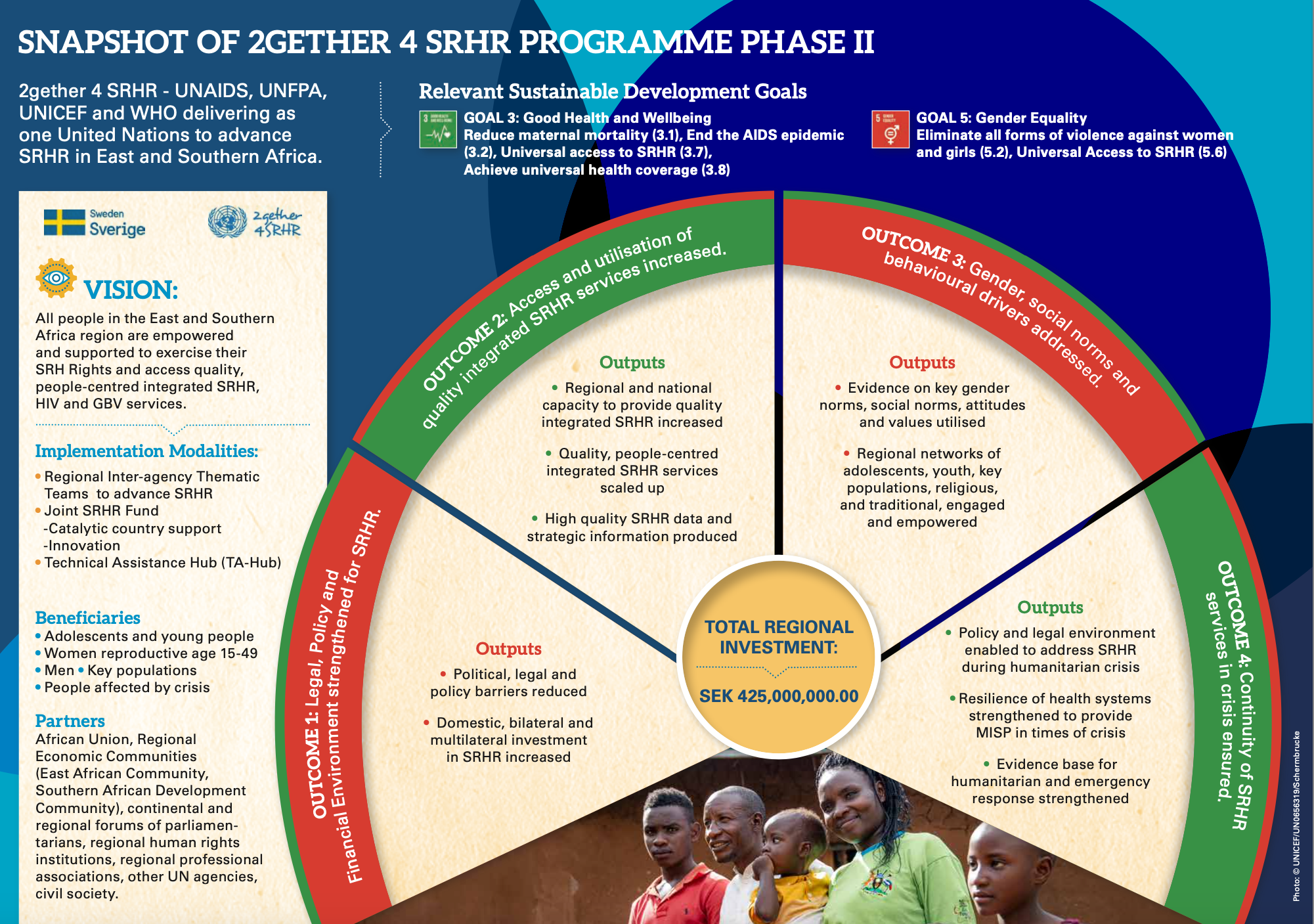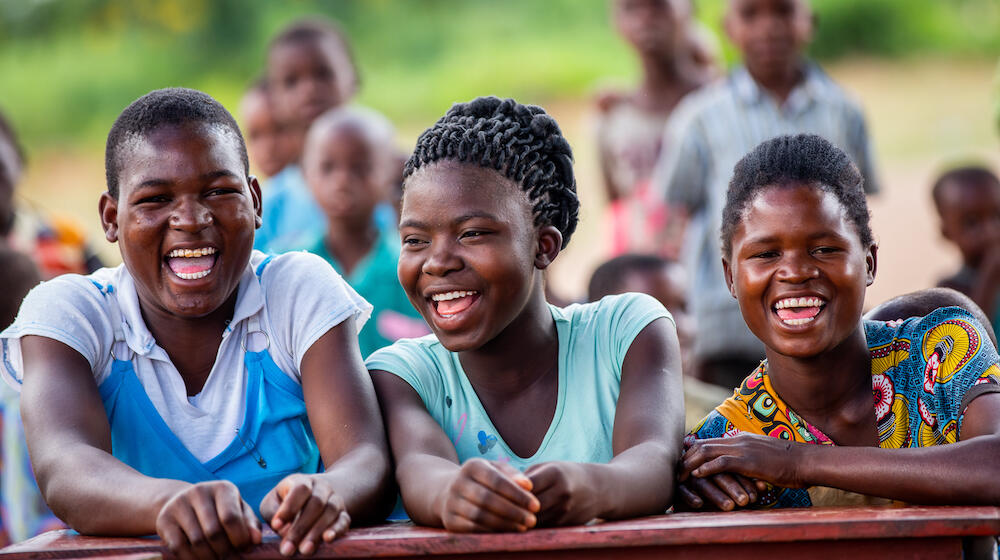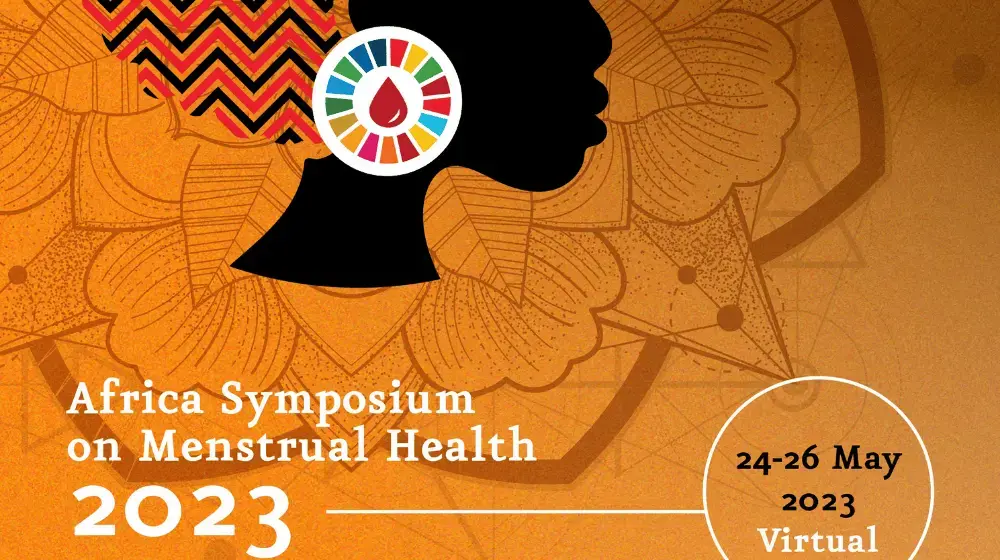PRETORIA, South Africa – “Young girls in Uthukela have been spared unwanted pregnancies, because I was empowered as a mentor to give them prevention options,” said nurse Gugu Shangase from Wembezi Clinic in rural Kwa-Zulu Natal, South Africa.
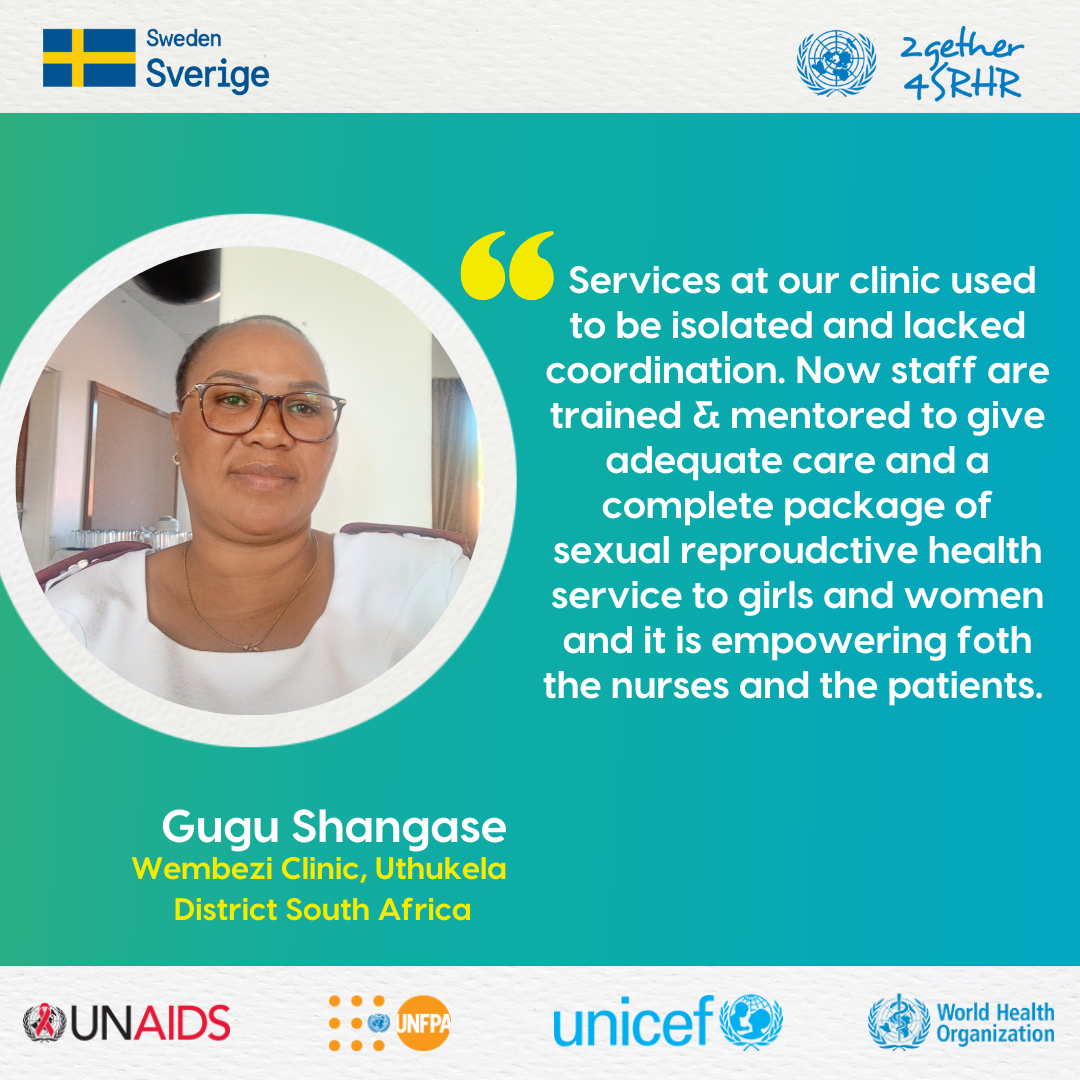
Ms. Shangase trained as a provider of integrated sexual reproductive health services through the joint UN programme, 2gether 4 SRHR, a sexual and reproductive rights initiative for which Sweden last week announced a significant investment of $42 million. The initiative has had a transformative effect on health-care workers, and has empowered young girls and women in her community, Ms. Shangase said at an event last week to launch phase two of the programme.
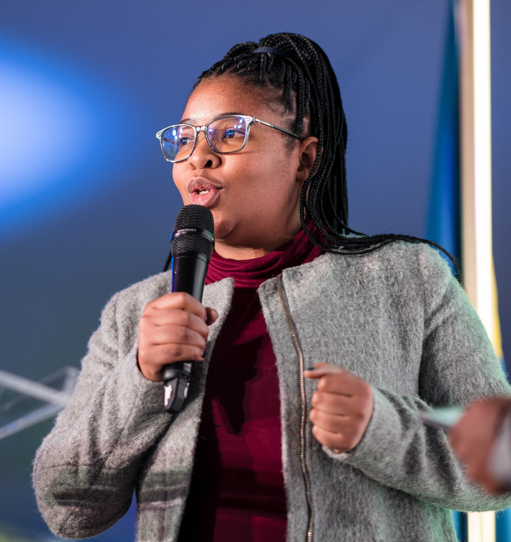
Youth activist Teboho Mohloai, Secretary General of the African Youth and Adolescents Network on Population and Development (AfriYAN), began as a volunteer on the programme and gained full-time employment due to the skills and opportunities she gained as a result. She highlighted the programme’s commitment to youth leadership, in particular with AfriYAN ESA. Through this support, AfriYAN ESA made a commitment to build the capacity of young people and give them access to decision-making spaces.
The 2gether 4 SRHR programme is a collaborative effort involving UNAIDS, UNFPA, UNICEF and WHO. The initiative aims to strengthen sexual and reproductive health services and reproductive rights in East and Southern Africa by integrating gender-based violence and HIV services into sexual and reproductive health packages, with a focus on marginalized and vulnerable populations.
Ensuring no one is left behind
Sweden’s further investment of $42 million in the 2gether 4 SRHR programme was announced by Håkan Juholt, Sweden’s Ambassador to South Africa.
“Sweden is committed to working together with our partners to ensure no person is left behind. The realization of sexual and reproductive health and rights is a priority for us and for the greater Team Europe group. This project is proof that through collaboration, we have the ability to change our future for the better,” he said.
Over the past four years, Sweden has provided $58 million in support of the joint programme. “The additional funding increases this investment to $99 million, an incredible boost to ensuring universal access to sexual and reproductive health and rights in East and Southern Africa,” said Lydia Zigomo, UNFPA’s Regional Director for East and Southern Africa. “In the next phase, we will focus our efforts on those countries, communities, populations and areas of SRHR left furthest behind.”
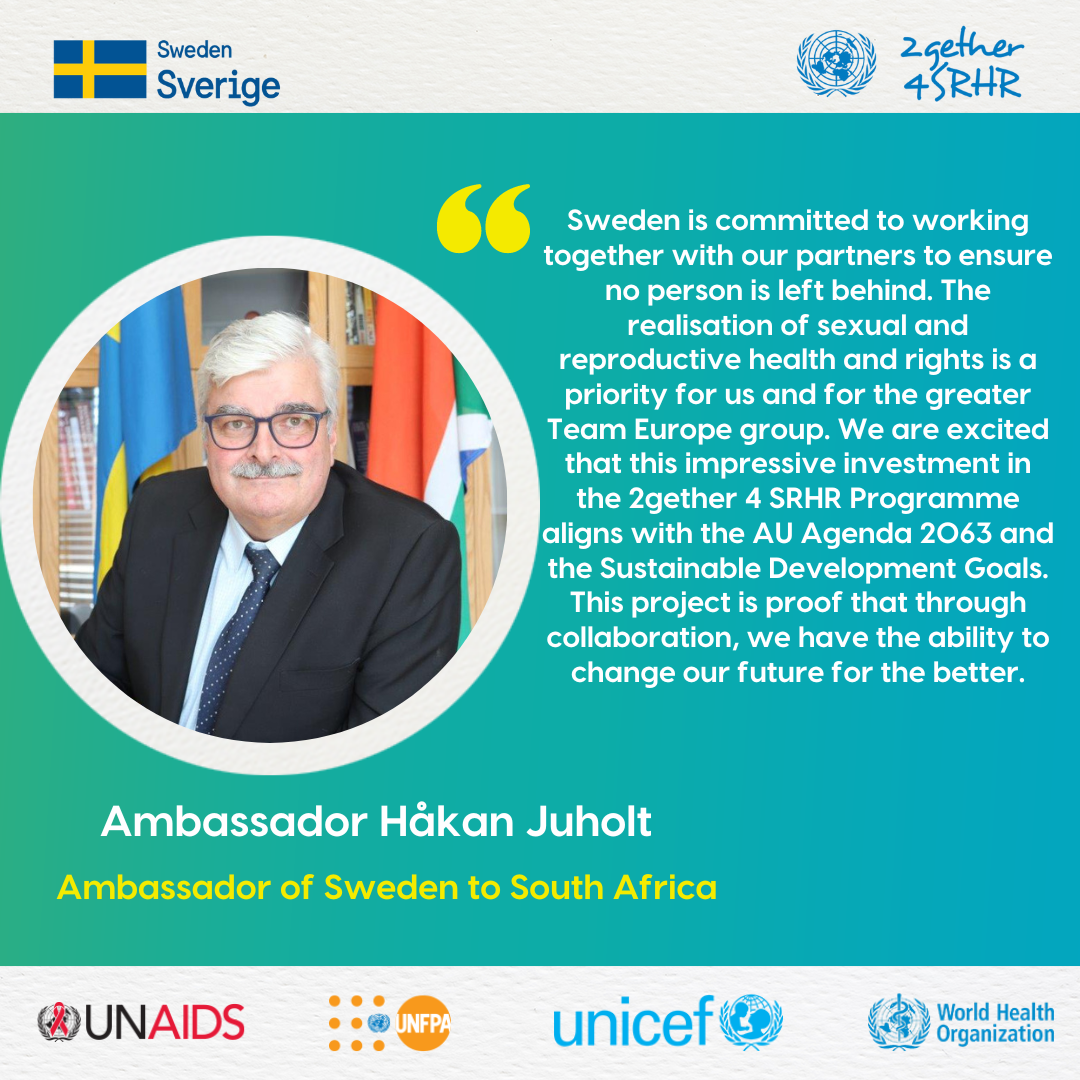
The powerful partnership has placed sexual and reproductive health and rights firmly on the agenda of countries, and the region. However, despite the gains made, concerted efforts are required to meet the targets of the SDGs.
Our collective goal will be to ensure that all countries come as close as possible to achieving the Sustainable Development Goals (SDGs) targets, while supporting those at the forefront to protect and make even further advances,” said Anne Githuku-Shongwe, UNAIDs Director, Regional Support Team, East and South Africa.
2gether 4 SRHR achieves results
Four successes achieved by the 2gether 4 SRHR programme over the past six years include:
Working with the Southern African Development Community (SADC) and partners, UNFPA developed the SADC SRHR Strategy and Scorecard to track progress in the region in meeting the sexual and reproductive health and rights commitments of the strategy, and the SDGs.
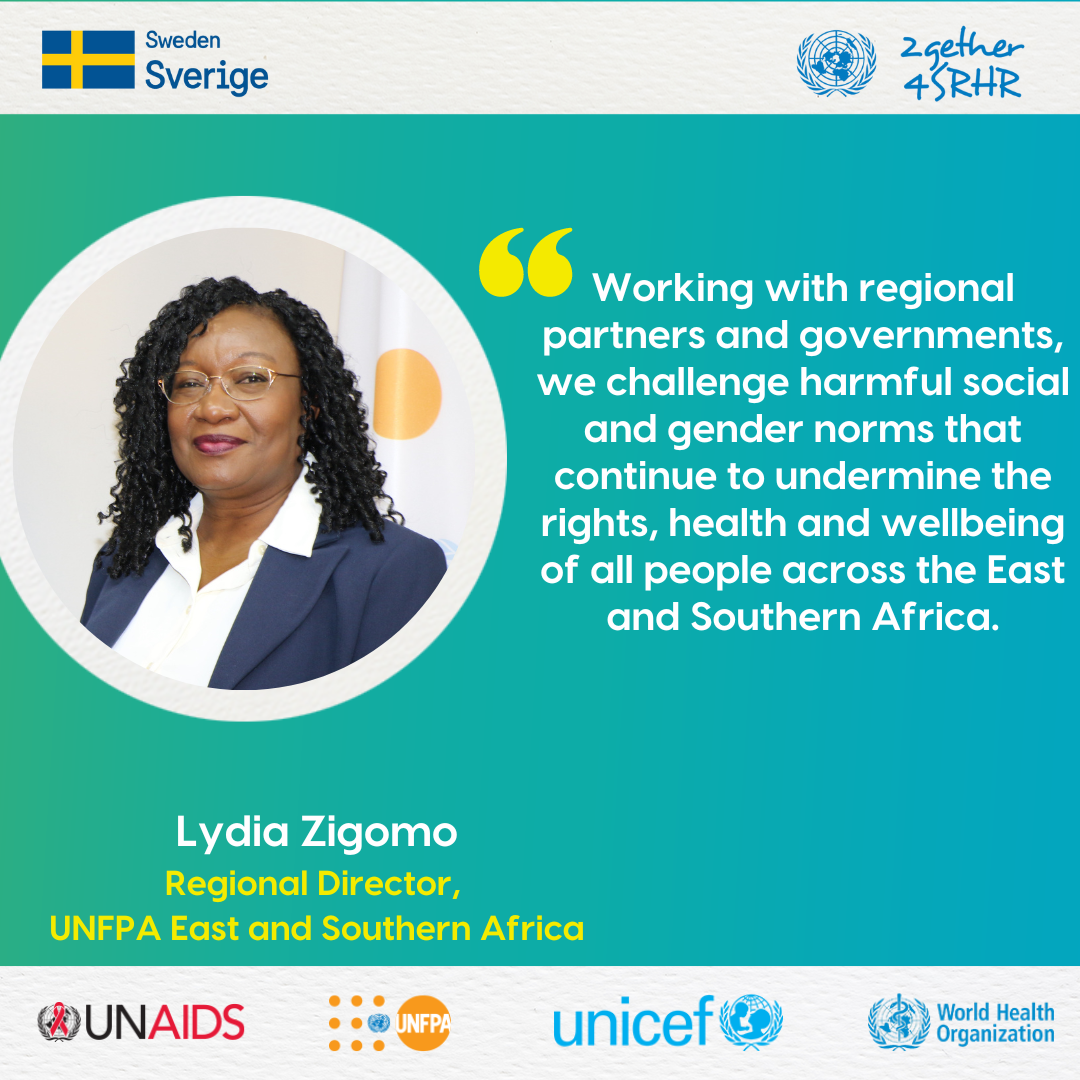
We have supported the East African Legislative Assembly and civil society to engage in regional and national dialogues to advance sexual and reproductive health and rights, to counter misinformation and disinformation to protect advances in this regard.
During the COVID-19 pandemic, the extent to which essential sexual and reproductive health services were delivered was tracked, and SRHR was firmly embedded in national disaster plans. Countries were supported to use community-based approaches during lockdowns to ensure continued access to lifesaving SRHR services for those most in need.
Ten countries have developed laws, policies and strategies that advance sexual and reproductive rights. Models and approaches that deliver people-centered integrated SRHR services have been scaled up, including for adolescents, young people and key populations. This is one of the few programmes that supports countries to strengthen the delivery of comprehensive abortion care services in accordance with their legal frameworks.
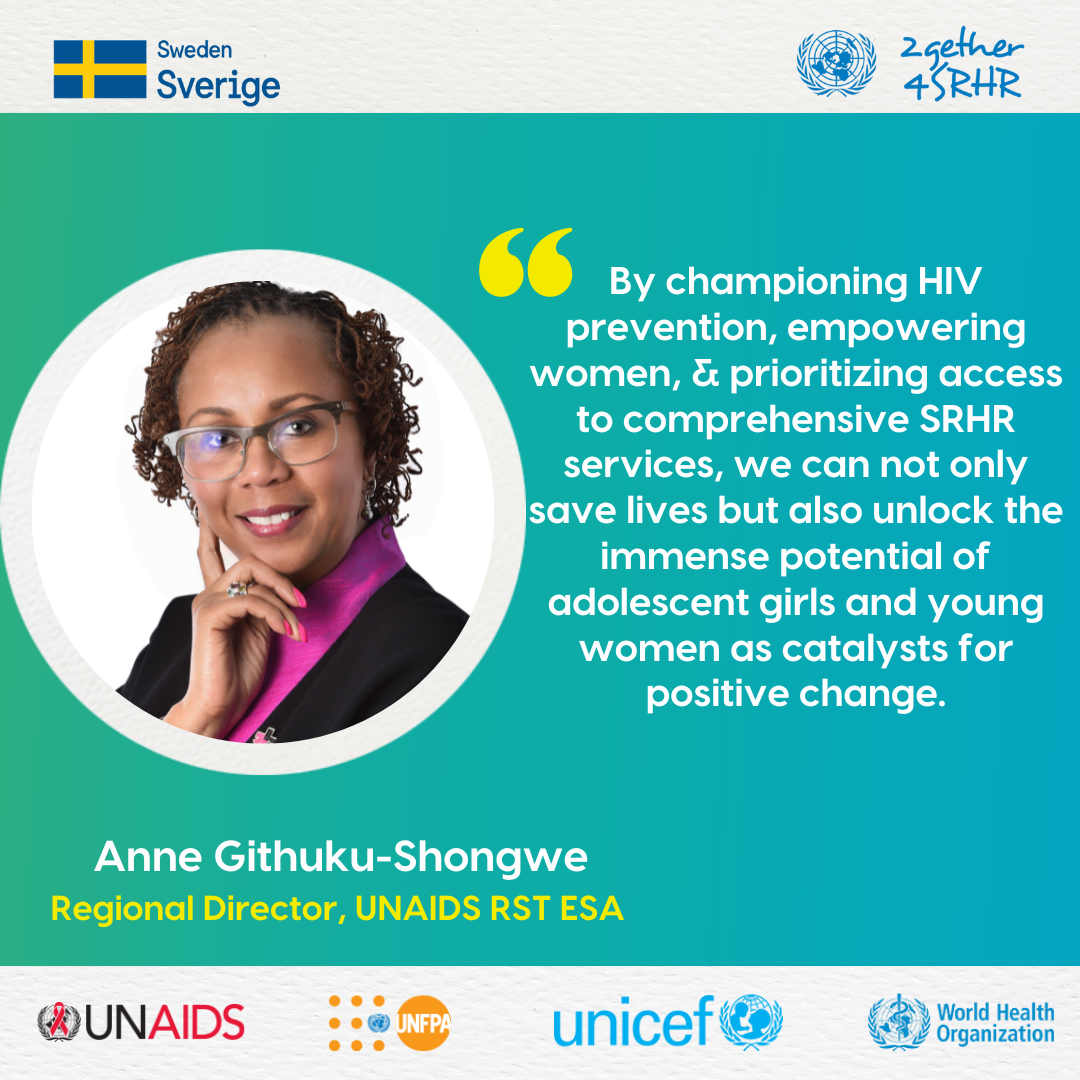
Phase II of the programme is to be implemented in 10 countries across East and Southern Africa over the next four years. This will address pressing challenges in sexual and reproductive health and rights in the region, including limited access to comprehensive services, high rates of teenage pregnancy, the prevalence of gender-based violence, and the increasing vulnerability of marginalized populations due to restrictive policies in some countries.
The initiative will prioritize the provision of sexual and reproductive health services in humanitarian crises and emergency situations, to ensure that no one is left behind.
The launch of phase II signifies a new chapter in the journey towards improved sexual and reproductive health and rights in the region. Through the collaborative efforts of the United Nations, regional economic committees, partner organizations, and committed individuals, the initiative aims to create lasting change and build a future where everyone can exercise their health and rights, and live a life of dignity and well-being.
